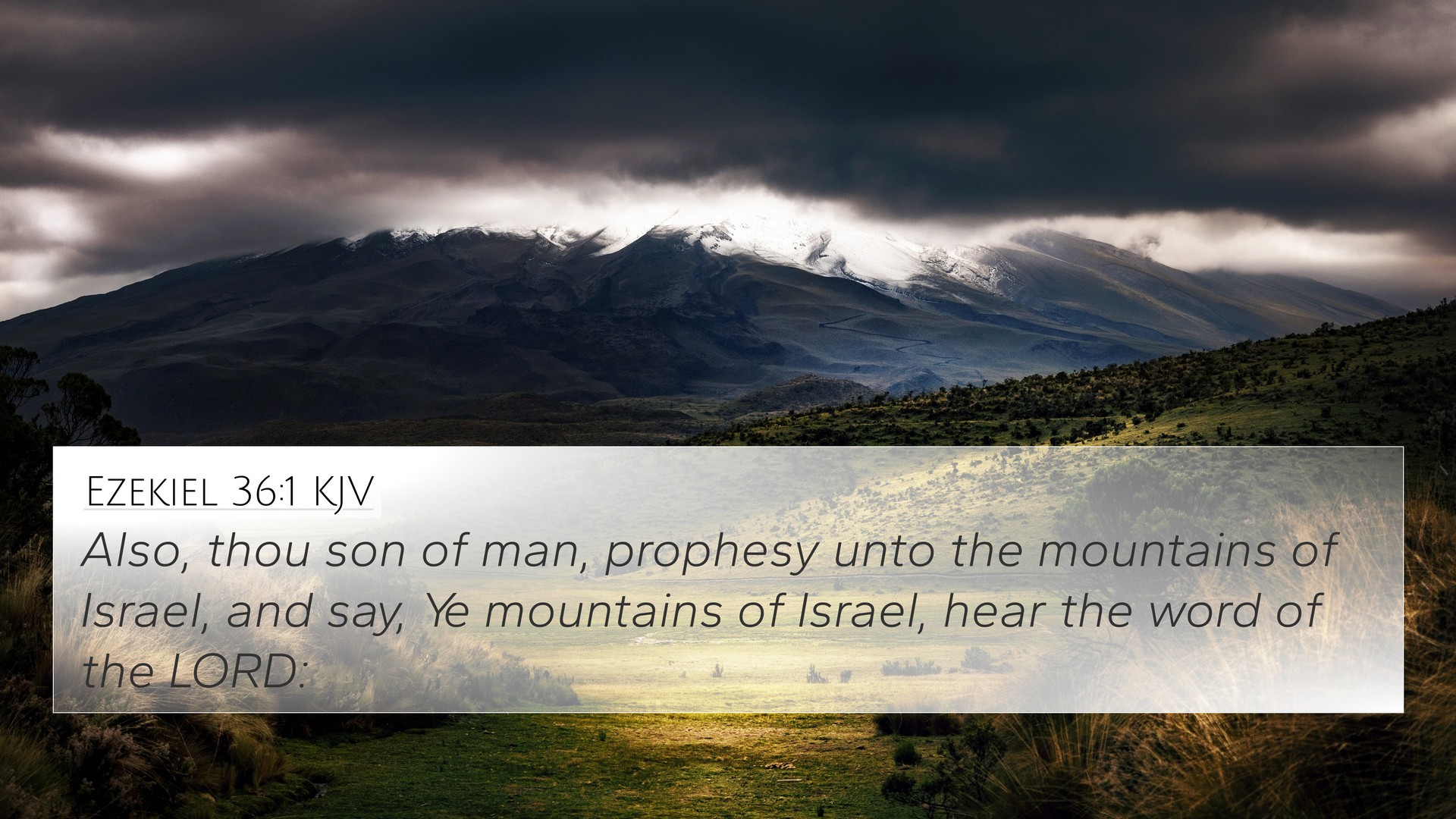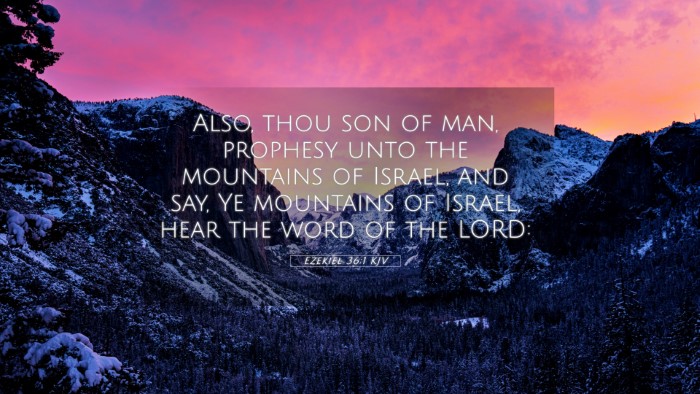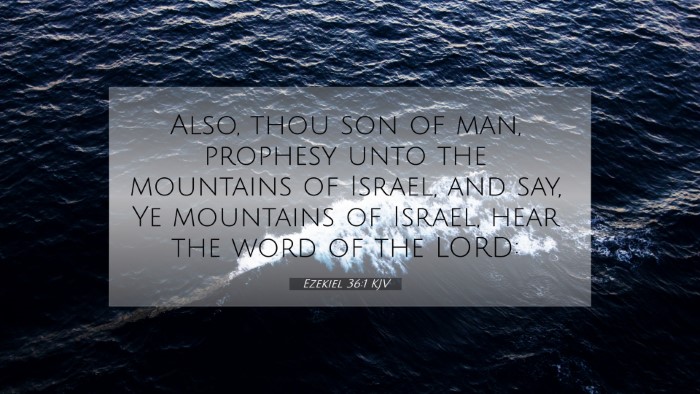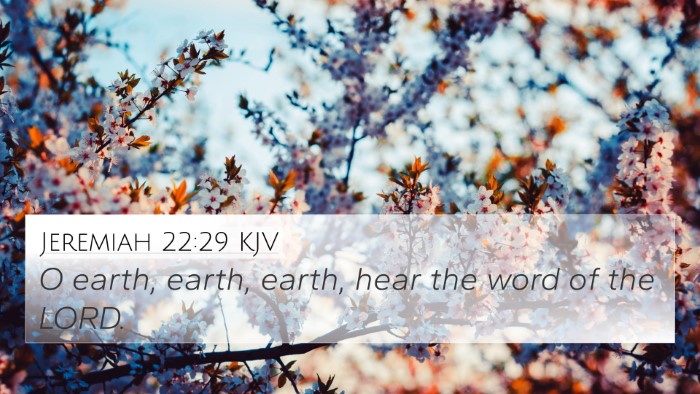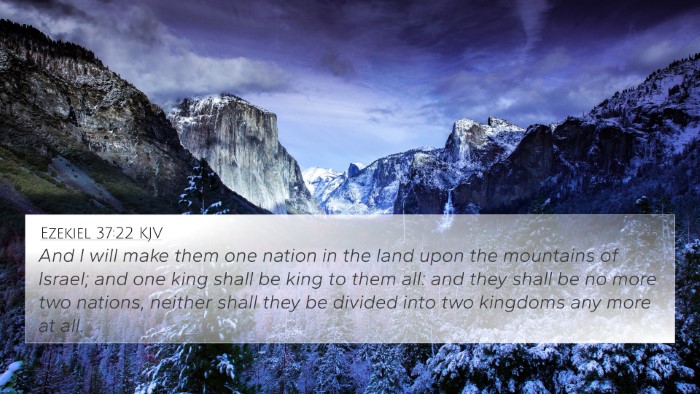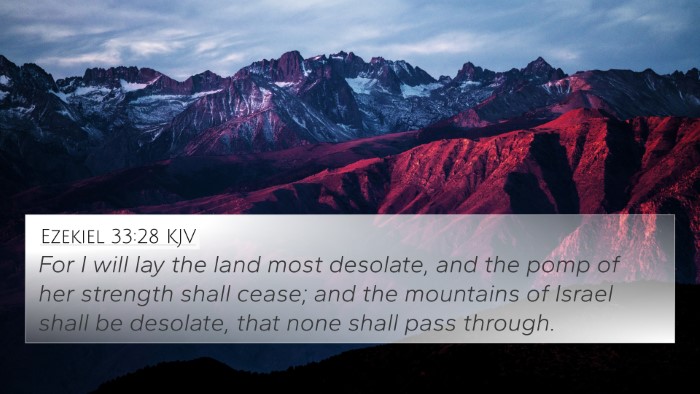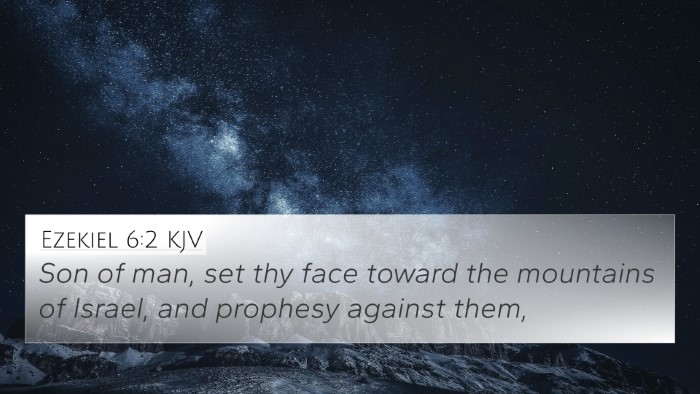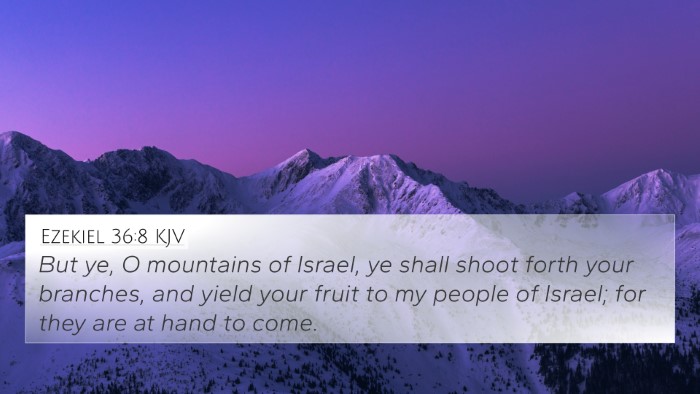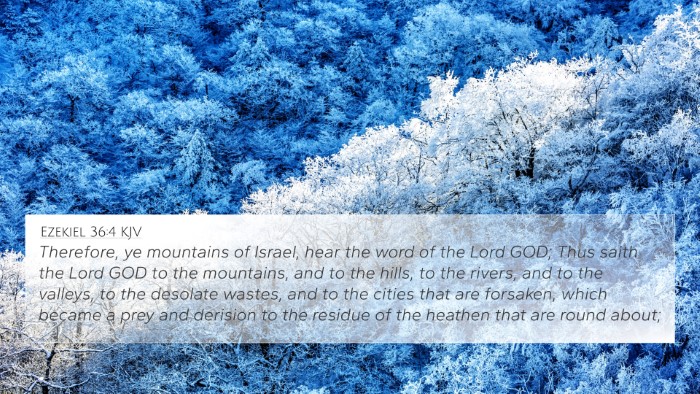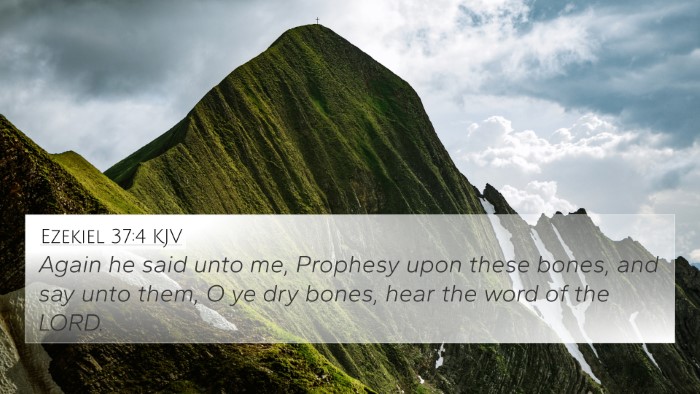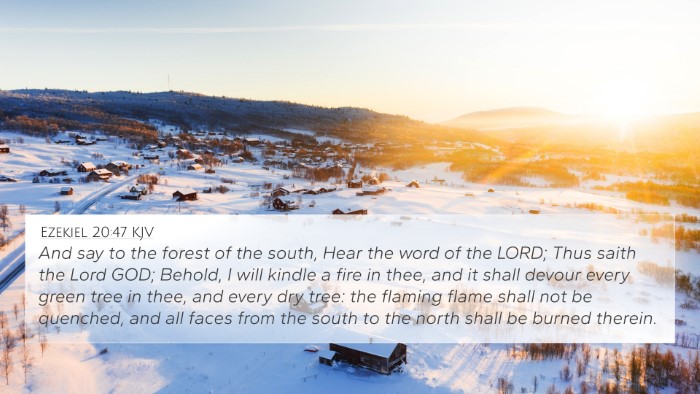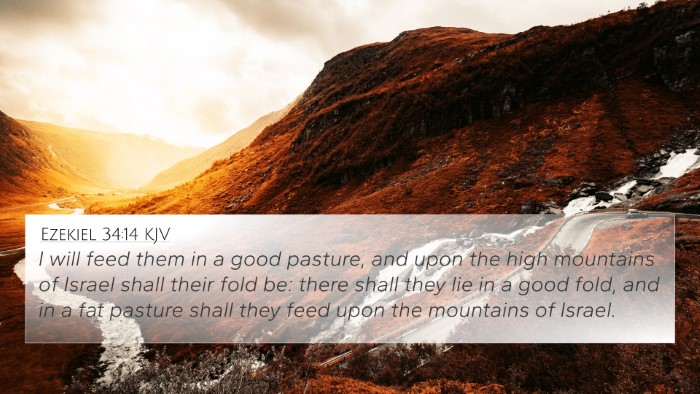Ezekiel 36:1 - Summary and Interpretation
Ezekiel 36:1 states: "And thou, son of man, prophesy unto the mountains of Israel, and say, Ye mountains of Israel, hear the word of the LORD." This verse serves as a significant catalyst for understanding the prophetic messages directed at Israel and the divine restoration anticipated for God’s people.
Context and Setting
The Book of Ezekiel is set during a time of great turmoil for the people of Israel, specifically during their Babylonian exile. This prophecy, addressed to the mountains of Israel, symbolizes the entire nation and God's impending actions regarding their future restoration and renewal.
Commentary Insights
This verse is a vivid declaration of God’s authority and a call for Israel to listen to His promises and warnings. Let’s draw insights from notable public domain commentaries:
-
Matthew Henry:
Henry emphasizes that the "mountains of Israel" represent the entire landscape of Israel and serves as a focal point for God’s prophetic word. He highlights the importance of God's voice being directed not just to the people, but to Israel's identity and land. He also notes the assurance that God's word has the power to transform their disgrace into glory.
-
Albert Barnes:
Barnes expands on the idea of God speaking through His prophet, Ezekiel, to call the attention of the mountains, which metaphorically represent both the physical land and the spiritual situation of Israel. He positions this directive as preparatory for the restoration that follows, indicating God’s interest in the land and its people.
-
Adam Clarke:
Clarke interprets this verse as God asserting His sovereignty over nature and His people. He explains that calling upon the mountains signifies God speaking to the very essence of the land, and through this, He promises renewal and assurance of revival for Israel as a nation.
Thematic Connections
This verse can be connected thematically with several other scriptures which reinforce the message of restoration, God's sovereignty, and the significance of land. Below are some significant cross-references:
- Isaiah 40:9: "O Zion, that bringest good tidings, get thee up into the high mountain." This highlights the proclamation of joy and good news to Israel.
- Jeremiah 31:23: "Thus saith the LORD of hosts, the God of Israel; They shall yet again use this speech in the land of Judah." This aligns with God’s promise of restoration for His people.
- Joel 3:16: "The LORD also shall roar out of Zion, and utter his voice from Jerusalem." This emphasizes God's powerful declaration over His people and land.
- Romans 11:26: "And so all Israel shall be saved," pointing to a future restoration of Israel, complementing Ezekiel’s prophecy.
- Ezekiel 37:1-14: The vision of the dry bones, signifying restoration of Israel as a nation.
- Psalm 102:16: "When the LORD shall build up Zion, he shall appear in his glory." This reinforces the theme of restoration and God’s presence among His people.
- Isaiah 54:10: "For the mountains shall depart, and the hills be removed; but my kindness shall not depart from thee," which assures God's everlasting commitment to Israel.
Understanding Cross-References in Scripture
Understanding the connections between Bible verses such as Ezekiel 36:1 and the listed references provides a more profound insight into God's plans and promises. Utilizing tools for Bible cross-referencing can greatly enhance one’s study and thematic analysis of the scripture. These can be found through:
- Bible concordance and reference materials that aid in establishing connections.
- Cross-reference guides available in many study Bibles.
- Online databases that allow for comparative studies between verses, focusing on themes of restoration, divine providence, and Israel's future.
Conclusion
The verse Ezekiel 36:1 is not merely a call for attention but a declaration of hope and transformation for the people of Israel. By understanding its context, thematic significance, and its interconnections with other biblical texts, one can grasp the profound implications of God's promises for restoration. This verse, through its many connections and symbolic language, compels readers to consider the depth of God's covenant relationship with His people.
